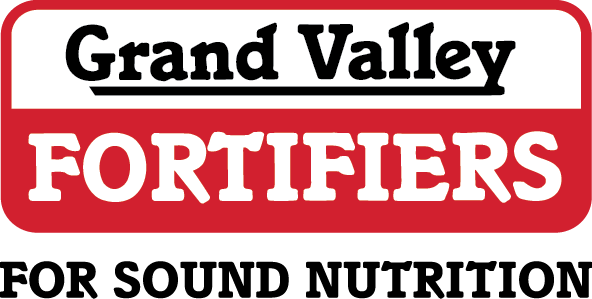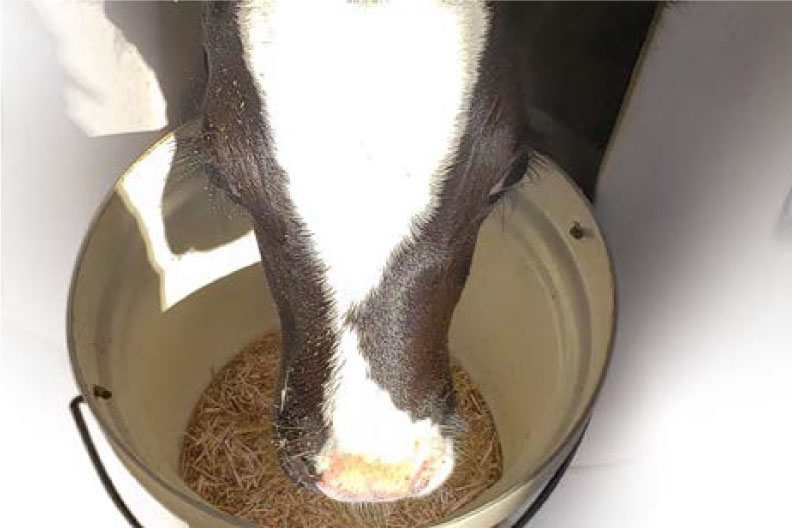Dairy Specialist,
Grand Valley Fortifiers
We want to ensure the calf starter is of high quality, has no dust or mold and is palatable to the calves, anything less will decrease their intakes. Ideally, we want the calves to be consuming 1 kg per day of calf starter by 8 weeks of age or approximately 3.5kg of TMR. It is important to keep the dry feed fresh, it should be a daily routine to give the leftover/old dry feed to the older calves and provide fresh dry feed to the young calves. If we were to stop the liquid nutrients before the rumen is completely developed the calves will not grow and may even lose body weight for a couple of weeks until the rumen has been developed. This is key as you want your calves to have a fully developed rumen to continue growing. Research shows that keeping calves on milk/milk replacers for 10 weeks provides better growth of the calf, and this would be recommended for all calves to achieve superior growth.
While feed is very important to achieve adequate growth, the housing environment of the calf is just as much so. Keeping calves out of drafts and wet environments is important to maintain a healthy calf and prevent sickness. Calves should have a deep bed to be able to make a nest and stay warm. A good way to check if the bedding is dry is to do a knee test, simply kneel down for 20 seconds and if your knees are damp or cold, there needs to be more fresh bedding added. In group housing environments, group calves according to size will allow for optimum growth and less competition at the feed bunk. If calves can be moved through the heifer program as a group to eliminate a stressor of introducing new calves to one another, that will help to keep them performing well.
In closing keeping the calf program consistent with high quality milk/ milk replacer, good quality dry feeds and a dry, draft free environment calves will perform well.
This article was written for the Spring 2023 Dairy Eastern Dairy Grist. To read the whole Dairy Grist, click the button below.

